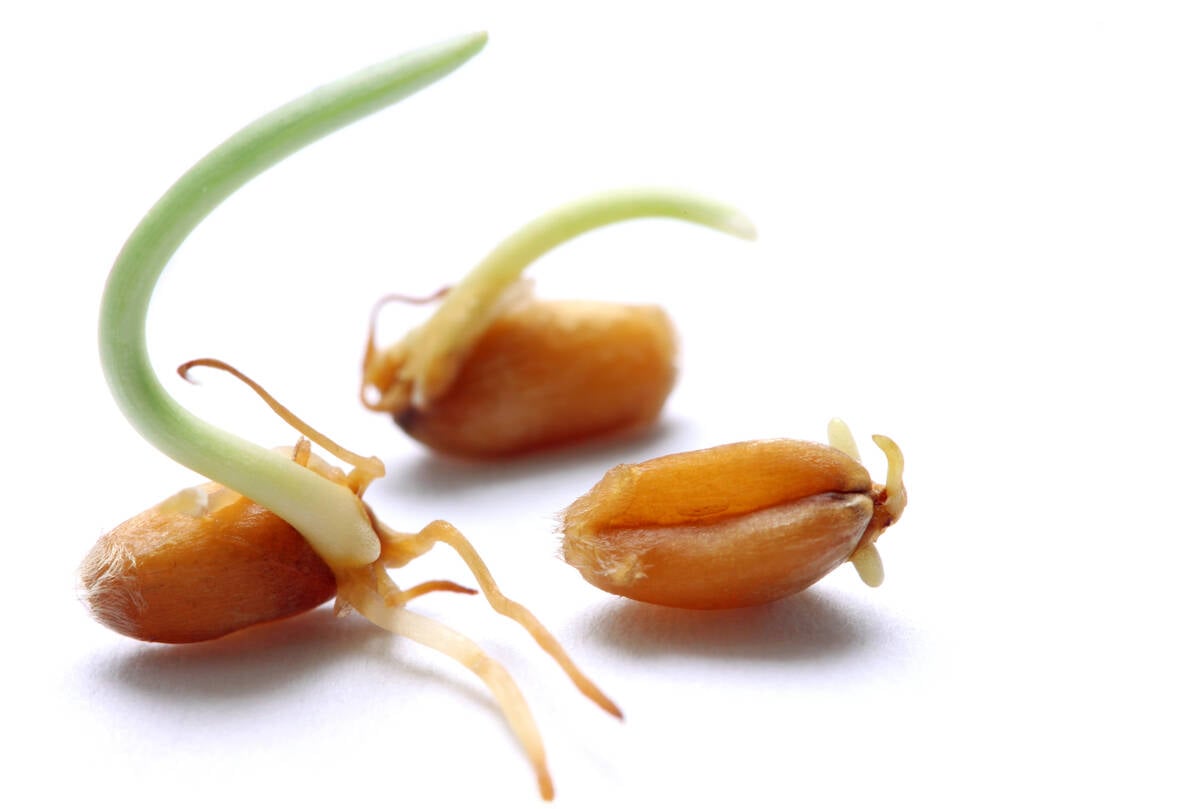On the wings of a mosquito is a virus that kills as many as half of the horses that it infects. It’s coming to a province near you.
West Nile virus is now a reality for horse owners across Western Canada. Vaccinating against the disease “is a must,” Trisha Dowling of the University of Saskatchewan told a stockperson’s school held by the Farm Animal Council of Saskatchewan and the U of S on May 8.
The professor of veterinary medicine said some American states have been taken by surprise with the speed of the spread of the disease and its virulence.
Read Also

Manitoba farmers fight sprouted wheat after rain
Rain in mid-September has led to wheat sprouting problems in some Manitoba farm fields.
“Nebraska had the largest number of horse deaths last year, even though they are one of the farthest states from the initial infections in Long Island (New York) in 1999,” she said.
In 1999, 25 North American horses were reported to have contracted the virus.
“The following year it was 60. Then in 2001, 416. Last year I am told it was 14,717…. This is moving fast and producers here need to make vaccinating against it part of their normal practices,” Dowling said.
The Culex genus of mosquitoes is blamed for most of the transmission of the virus from birds to horses. Researchers with the United States Department of Agriculture say the tendency for infection from these insects increases over the summer in the northern part of the continent.
They say this appears to be a result of increased infection rates in the birds that host the disease as the summer wears on, timed with increased populations in the Culex genus of mosquito.
Dowling said Culex female mosquitoes tend to be “voracious as the summer wears on. They take large blood meals in an attempt to lay as many eggs as possible before freeze-up.
“I guess we now know that these things can survive the winter,” she said.
Doses of the intramuscular killed-virus vaccine need to be followed up with a booster shot at three weeks.
Dowling said if the vaccine and then booster series is given in late April or early May, it should be given again in August when the infected mosquito population peaks.
“Just because they peak in July and August doesn’t mean infection can’t happen before that,” she said. “Do you want your horse to be infected because it was that one in 1,000 that happened outside of the peak? I don’t think so.”
Dowling said in testing, nine out of 11 horses infected with the virus became ill with symptoms of the brain inflammation disease.
“One in 19 became ill when the horses were vaccinated. So the vaccine works,” she said.
Dowling said because the vaccine is of a killed-virus type it is “relatively safe” and can be used on pregnant mares “with reasonable confidence. It’s better than losing a mare to the disease.”
She said foals should be vaccinated at three months if the mare wasn’t vaccinated.
“Treating a single infected horse here at the vet college is relatively inexpensive compared to some other places. It is only in the hundreds of dollars a day. So if the price of giving the vaccine is keeping you from using it, think of that bill or having a dead horse.”














